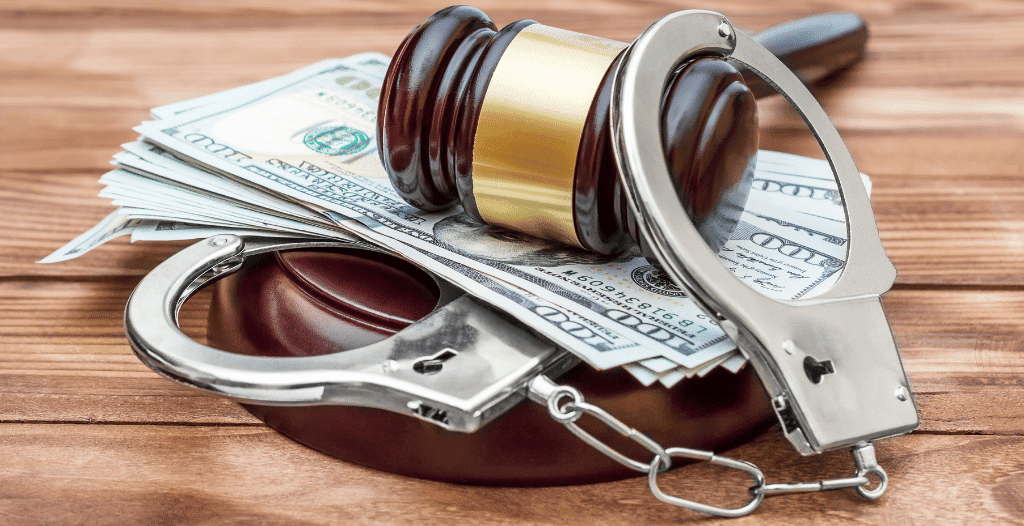How Does Bail Work? Avoid Jail After Arrest

Guilty. Innocent. Wrongfully accused. Multiple past offenses. It doesn’t make any difference in the immediate moments after you find yourself behind bars. No matter the circumstances that landed you in jail, you probably only have one thought on your mind: how soon can I get out?
Before you can even begin to manage the next steps of your legal case, getting out of jail so that you can continue to take care of your obligations at work and at home is likely at the top of your mind. That means that you’ll need to understand bail. How does bail work? Let’s take a closer look.
How Does Bail Work?
To put it simply, bail is a kind of guarantee. In exchange for your freedom from jail, you’ll pay a monetary amount—in cash, bond, or property—that the court will hold as a type of collateral. In exchange, you promise to make future court appearances and to not attempt to flee from the jurisdiction in which your court case is playing out. If you break that promise, the court will seize the property or money that they are holding. In the case of a bail bond, a bondsman may even send a bounty hunter after you.
While all of that sounds quite dramatic and makes for good TV, most bail situations are actually quite straightforward. In fact, many modern-day court systems have automatic bail amounts set for the most common charges. That means you could be booked in jail, pay the pre-set bail amount, and be back out living your life in a matter of hours.
Can Everyone Get Bail?
While bail is an available option for most criminal charges, it is not a universally applicable situation. Bail is ultimately up to the judge hearing the charges. If a crime is particularly violent, there’s a chance bail will be denied.
In addition to looking at the details of the alleged crime, courts will examine the accused individual’s past. If you have a lot of prior convictions, a history of erratic behavior, a pattern of skipping court dates or attempting to flee from convictions, or other red flags, the judge may decide not to extend a bail offer.
Your criminal defense lawyer can help you navigate your options if bail is not initially offered.
What if I Cannot Afford Bail?
One of the most common concerns about bail is that it is unaffordable. Bail amounts are designed to be burdensome because the court wants the amount to be high enough that the person paying it will see it as an incentive to not skip future proceedings. If the amount is too low, the fear is that the accused individual will simply cut their losses. This same logic, however, can make bail a steep burden for many incarcerated individuals who struggle to come up with the extra cash. This burden can become even more extreme when the incident that resulted in jail time has made them miss work or created additional costs such as car repair bills or complicated housing arrangements.
To put it simply, the moment bail is needed is often not an easy time for many people financially.
In the case that you cannot afford the bail posted, you can request a reduced bail amount. A lawyer can help you negotiate these details, and many times, the court will agree to reduce bail (sometimes in exchange for other elements that help guarantee smooth court proceedings and safe behavior in the interim).
Another option is to post bail through a bail bond instead of cash bail. Bail bondsmen are available in many states, and they often require a 10% payment of the full bail amount. In exchange, they will post the rest of the bail and take on the responsibility of tracking down any individuals who fail to meet the bail conditions by skipping court dates.
What Are the Usual Bail Conditions?
There are some typical bail conditions that are useful to understand:
- Cash Bail: The most straightforward, cash bail requires the amount of the bail to be paid in full as a monetary payment before the individual is released from jail.
- Bail Bonds: These transactions are managed by a third party (called a bondsman) whose business is posting bail for those who cannot afford the full amount. In exchange, the bondsman collects a portion of the amount as a fee and often holds the title to a piece of property as collateral.
- Property Bond: Instead of using cash, some individuals post their bail amount by using the title to a piece of property or a car. Like the cash payments, the court will hold these titles (through a lien) until the individual has satisfied all of the conditions of showing up for future court proceedings.
- Personal Recognizance: For those who are accused of very minor crimes or who can make a good argument about their personal responsibility and low likelihood of skipping out on their court appearances, the court may choose to release them without any bail demands. This is called being released on personal recognizance.
Navigating the bail process is only the first step in a long road of legal proceedings that take place after an arrest. Getting out of jail is an important part of returning to your daily obligations, and having a qualified and experienced lawyer on your side while you’re figuring out the rest of your legal options is key.


